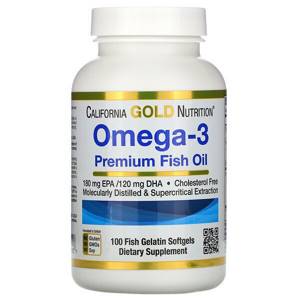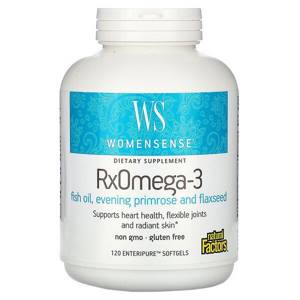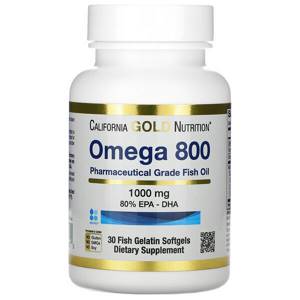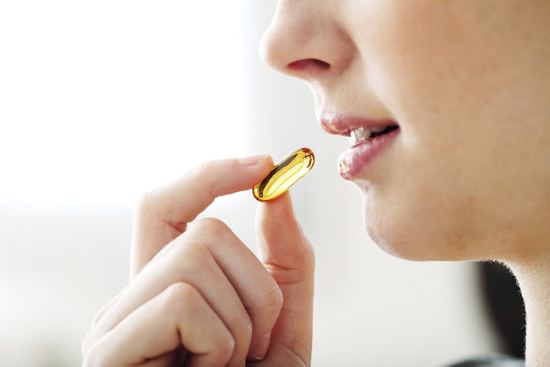Fish oil is a beneficial component of our food menu, providing undeniable benefits. Therefore, when the diet is poor in fatty sea fish, to replenish the systemic deficiency of fat from fish meat and liver, it is better to take its preparation, that is, drink in addition to food.
Medical oceanic fish oil, scrupulously purified by molecular distillation, is free of dangerous impurities that can cause eaten fish, so drinking fish oil in the preparation is more harmless.
At the same time, all the components useful and necessary for our body are left unchanged. Additionally, there is control over the correct amount of fatty product intake - it can always be edited and adjusted based on needs.
Today you can safely buy and take fish oil in the following forms:
- liquid preparation poured into bottles;
- fat in capsules made from gelatin or vegetable components;
- a special children's preparation with improved taste and aroma;
- combined fat-based products enriched with other healing ingredients.
The doctor decides which type to take, but if there are no clear instructions, then focus on your taste and financial preferences.
useful to read on hvastik.com Omega 3 contraindications and side effects... and 19 comments
How to take fish oil capsules?

Fish oil or Omega-3 fatty acids are an essential component for healthy functioning. Most often, the active substance enters the body with food, but the average person’s diet is not always filled with products containing Omega-3 in the required quantity. To compensate for the deficiency, you should pay attention to fish oil capsules.
The optimal daily dosage of Omega-3 is considered to be 2000-3000 mg. Calculate how much fish oil you consume in food, and take the rest in capsules. Do not be afraid to exceed the dosage, since the maximum allowable portion of fish oil is 8000 mg per day.
Important! When choosing a supplement, pay attention to the source of origin. So Omega-3 from fish is absorbed better and faster than Omega-3 from plant origin.
A few rules for drinking fish oil capsules:
- Capsules should be taken with food to reduce the risk of stomach discomfort.
- The daily dosage should be divided into 2-3 even doses.
- The course of the supplement lasts no more than 4-5 weeks, after which there is a break of 2-3 weeks.
- The optimal period for including supplements in the diet is considered to be the time when the body does not receive additional vitamins and minerals from food (autumn, winter, spring).
- Excessive dosages are fraught with diarrhea and disruptions in the gastrointestinal tract.
Optimal dosages of drugs
Local Russian pharmacies and iHerb are full of fish oil supplements. In order not to waste money and get maximum benefit, you need to pay attention to some parameters:
- Raw materials. The best option is fat made not from liver, but from fish meat. It contains more PUFAs, it is easy to clear it of impurities, the muscles almost do not accumulate mercury and other harmful substances.
- Contents of DHA (DHA) and EPA (EPA). Docosahexaenoic and eicosapentaenoic acids indicate the effectiveness of the drug. It often happens that the fat sold in pharmacies is actually empty, it contains almost no PUFAs. Before purchasing, be sure to look at the concentration of DHA and EPA. It is desirable that the supplement contains 120 mg or more of docosahexaenoic acid.
- Manufacturer. American dietary supplements with Omega-3, sold on IHerb, almost all work great. But it is not recommended to buy domestic BioContours or Mirrolls; they contain too few useful acids. Yes, they are affordable, but they have almost no benefit, only if you take 20-30 pieces daily.
The main 2 forms in which Omega-3 is produced are liquid and capsules. The dose of fish oil per day directly depends on the format of the dietary supplement and the characteristics of the drug itself.
Encapsulated forms

California Gold Nutrition Omega 3 Premium Fish Oil...
★★★★★
548 ₽
Buy at a discount

Natural Factors, WomenSense, RxOmega-3, 120 Enteripure Softgels
★★★★★
879 ₽
Buy at a discount

California Gold Nutrition Omega 800 Pharmaceutical Grade Fish Oil...
★★★★★
705 ₽
Buy at a discount
Usually the manufacturer indicates on the package how many tablets to take per day. But with serious physical or mental stress, stress and nervous tension, the dose increases.
First of all, we look at the packaging. Let's take the encapsulated drug from Solgar as an example. Each capsule contains 1000 mg of fish oil, this is the standard volume for Eicherb products. Previously, we found that adults need to take at least 1 gram of fish oil per day. The manufacturer suggests taking 2 tablets. This is 2 grams of pure fish oil.
But how much EPA and DHA is there? The label states that 2 tablets contain 600 mg of Omega-3, of which 320 mg is EPA, 200 is DHA, and the rest is other PUFAs. These are good indicators; on average, other manufacturers have a daily requirement of DHA of 120 mg.
This dietary supplement can be taken according to the manufacturer’s recommendations. But there are supplements that say on the bottle to take 1 capsule, but the dosage is not enough. In this case, you can independently exceed the recommended dosage.
How to properly drink fish oil in liquid form?

The liquid form of release is losing its popularity and is gradually leaving pharmacy kiosks. It is much more convenient to eat a capsule than to drink liquid fish oil, which has a rather specific taste. However, the liquid form is still used. You need to take it one tablespoon 3 times a day. Unlike capsules, liquid Omega-3 acids should be taken after meals.
Otherwise, all recommendations are identical, as when taking the capsule form.
Important! Liquid fish oil can be taken not only internally, but also externally. There is an oil form that is designed for similar purposes. It is used to speed up recovery processes after receiving various wounds or burns. Also, fish oil in the form of oil is a popular component in anti-aging face masks. Experts note the powerful effect of the supplement on hair growth, which is why it is often used as a hair care product.
Instructions for use
| pharmachologic effect | The effect of fish oil is determined, first of all, by the content of omega-3 polyunsaturated fatty acids (eicosapentaenoic acid, docosahexaenoic acid). These acids are structural components of cell membranes, help reduce cholesterol levels in the blood, reduce platelet aggregation, and improve the rheological properties of blood. |
| Indications for use | Complex therapy for the prevention of atherosclerosis, including diet, statins, antiplatelet agents. Read more about the benefits of fish oil. |
| Dosage | Take 1-3 capsules orally 3 times a day, after meals, with water. After 1-3 months of treatment, it is recommended to do a general blood test and continue taking the drug depending on the results. |
| Side effects | Allergic reactions, decreased blood clotting, exacerbation of chronic cholecystitis and pancreatitis, as well as diarrhea and fishy breath are possible. |
| Contraindications |
|
| Pregnancy and breastfeeding | Data is conflicting, consult your doctor. |
| Drug interactions | Patients taking medications that affect the rate of blood clotting should discuss taking fish oil with their doctor. |
| Overdose | Symptoms: possible exacerbation of cholelithiasis and chronic pancreatitis. Treatment: symptomatic, drug withdrawal. |
| Release form | Soft gelatin capsules or in liquid form. |
| Storage conditions and periods | Store in a dry place, protected from light, out of reach of children, at a temperature of 15-25°C. Expiration date - as indicated on the package. |
| Compound | Fish oil is a slightly viscous yellow oil, transparent, without visible particles, with a characteristic odor. Auxiliary substances for the formation of capsules are gelatin, glycerol and others. It is possible to use vitamin E as a preservative. |
How much fish oil should I take?

Before starting the course of treatment, you must read the instructions on the jar. If you use the capsule form, then one capsule most often contains 500 mg of the active substance. Based on this, you should calculate your daily intake and distribute it into 3 doses.
The amount of fish oil you need in your body depends on the goals you set for yourself.
For example, for preventive purposes it will be enough to consume 1000-1500 mg of fish oil. If there are any diseases, the dosage should be increased to 2500-3000 mg. If you are using the supplement for recovery after heavy physical activity, then take 3000-4000 mg per day. For the purpose of losing weight, fish oil is taken in dosages from 2000 to 5000 mg, depending on the amount of excess weight and individual tolerance of the supplement.
In any case, fish oil will help keep the body in good shape, have a positive effect on the functioning of internal organs, improve memory and speed up the replenishment of energy reserves.
Daily intake of Omega-3 fish oil
If we consider the minimum daily intake of Omega-3, then you need to remember that it is 250 mg, the optimal dose for health is 1000 mg. In general, you need to understand that a lot depends on the source of Omega-3.
When starting to think about taking Omega-3, you should know that you should approach the study of this issue comprehensively and responsibly in order to avoid various ailments, troubles and health problems that you often encounter.
For example, regular consumption of fish oil will begin to manifest itself positively at the moment when a person manages to cover the existing deficiency in the body, it is worth taking note. What this all boils down to is that regular and incorrect intake of higher doses can lead to negative consequences and is generally dangerous for the body.

The benefits of fish oil, indications for use – who benefits from fish oil and how?
General recommendations for getting fish oil from food are two servings of oily sea fish per week .
For reference:
Athens scientists observed a group of subjects aged 18-90 years and concluded that regular consumption of fatty fish will help avoid problems with the cardiovascular system.
Scientists from Boston confirmed the data of their colleagues and commented on the research results, giving priority to fish with dark meat - sardinia and mackerel.
Scientists from the University of Sydney have released information that children who regularly consume fish or fish oil are less susceptible to asthma than their peers.

It is worth highlighting separately that fish oil increases the content of serotonin in the body - this is the hormone of happiness.
Let us remember that fish oil is mainly used for prevention rather than for treatment.
Weight loss
Fish oil doesn't really help you lose weight. In mice, supplementation with Omega 3 fatty acids induces the expression of genes that stimulate the breakdown of fatty tissue. Unfortunately, this effect does not occur in people. Fish oil does not speed up metabolism. Websites that claim that this product helps you lose weight are charlatans. To date, there are no supplements that help you lose weight quickly and do not have harmful side effects. Centr-Zdorovja.Com recommends a filling and tasty low-carbohydrate diet. In addition to it - Siofor (Glucophage) tablets. Check with your doctor before taking this medicine.
The study involved several dozen obese people who did not know whether they were taking fish oil or a similar-tasting vegetable oil. This is called a placebo-controlled study. It showed that fish oil is useless for weight loss. However, people who are overweight have other reasons to take Omega 3 fatty acids. You probably have low-grade chronic inflammation in the blood vessels, which is why atherosclerosis quickly develops. A heart attack or stroke is just around the corner. Fish oil reduces inflammation and lowers blood pressure. Read more in the articles “Prevention of heart attack and stroke”, “Atherosclerosis: prevention and treatment”.
Drug interactions
The main concern is the interaction of fish oil with medications that thin the blood and prevent blood clots. These are aspirin, heparin, warfarin (Coumadin), clopidrogel and other drugs. The listed medications are often prescribed to prevent heart attack and stroke, as well as after heart surgery.
Medicines and fish oil together may increase the risk of bleeding. Because of this, doctors often prohibit patients from consuming fish oil at the same time as pharmaceutical tablets. But if you take fish oil no more than 3 grams per day, then the risk of negative interaction with blood thinning medications is small. And the benefits of Omega 3 fatty acids can be significant. It may be possible to use medications and fish oil at the same time if the patient frequently undergoes tests that monitor the rheological properties of the blood. However, the doctor knows better. Do not attempt to arbitrarily replace these medications with fish oil!
Fish oil, along with strong hypertension medications, can excessively lower your blood pressure. Symptoms of hypotension are dizziness, lethargy, drowsiness, headaches. The likelihood of such side effects is negligible. If they occur, you need to reduce the dosage of “chemical” blood pressure pills or even give them up altogether. It is unlikely that anyone will object if he has the opportunity to maintain normal blood pressure without harmful pills. Read more in the article “Causes of hypertension and how to eliminate them.”
Orlistat (Xenical) is a medicine that interferes with the absorption of dietary fats in the intestines. This drug is often prescribed to people who want to lose weight. Together with other fats, it will interfere with the absorption of Omega 3 fatty acids. Taking fish oil along with this drug increases the risk of diarrhea, bloating, and flatulence.
What vitamins are contained in fish oil?
Natural fish oil, extracted from cod liver, contains vitamins A and D in small quantities. Manufacturers may also add some vitamin E as a preservative. However, they take this remedy not for the sake of vitamins, but so that the body receives valuable Omega 3 fatty acids - eicosapentaenoic and docosahexaenoic.
Some consumers are concerned about the risk of vitamin overdose if they take fish oil at the same time as other medications that contain vitamins A, D, and E. However, this risk is almost zero. Fish oil contains these vitamins in small quantities or not at all. For more details, read the instructions for use and information on the packaging about the composition of the drug.
Benefits and harms

As already mentioned, fish oil has many supporters both among doctors of various profiles and among admirers of alternative medicine. In addition to prevention and health promotion in general, fish oil can be taken for various ailments. But in these cases, it is better to consult a doctor about the dosage and duration of the treatment course.
List of indications:
- atherosclerosis;
- gestation period;
- increased blood pressure;
- diseases of the nervous system;
- rickets;
- ailments of the reproductive system;
- weight loss.
The beneficial properties of this supplement are numerous. And they are not known to all people.
Benefit:
- prevention of prostate diseases in representatives of the stronger half of humanity;
- normalization of reproductive function in women;
- strengthening bone and joint tissue;
- improving the functioning of the ovaries;
- improving the condition of the skin;
- reduction of skin pigmentation;
- prevention of blood clots;
- acceleration of metabolic processes;
- promoting weight loss;
- stabilization of psycho-emotional state;
- improvement of cognitive functions;
- fight against diseases of the nervous system.
Fish oil is considered a panacea, but only if it is taken in doses and for a certain period of time. In order not to provoke an excess of vitamins in the body, which is just as bad as their deficiency, you need to drink it in courses and then take breaks.

Despite the enormous benefits of fish oil, there are also contraindications to its use. If you ignore them, you can harm your health.
List of contraindications:
- excess vitamin D in the body;
- thyrotoxicosis;
- renal pathologies;
- excess calcium in the body;
- allergic reaction.
Although fish oil is presented as a dietary supplement, doctors still regard it as a medication. Accordingly, before taking it, you should consult with a specialist and carefully study the annotation.
Let's summarize. In today's article, you learned how much fish oil a person can take per day and what is the duration of one course. These indicators are generalized. It is better to adapt to the characteristics of your body, enlist the support of a doctor and follow his instructions. Do not forget that we also get the same components that are contained in fish oil from seafood and fish fillets. And their excess is not good. Be healthy and beautiful!










